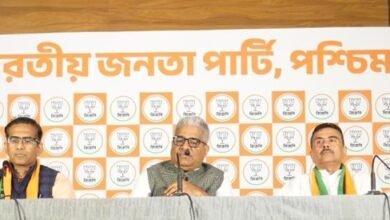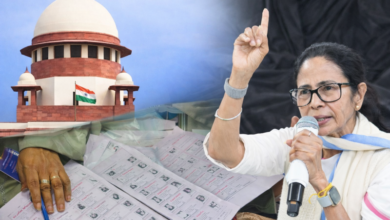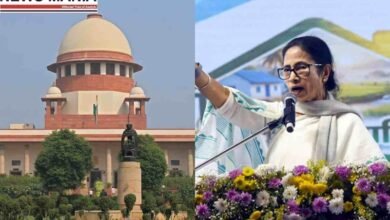Supreme Court Criticizes The Government For The Chief Election Commissioners’ Brief Terms In Office

The Supreme Court noted that no chief election commissioner had fulfilled a full six-year term since 2004 while considering the collection of arguments for a collegium-like structure for the appointment of the CEC. The supreme court described it as a disturbing tendency and an abuse of the silence of the Constitution and claimed that it was caused by the absence of a statute regulating the appointment of election commissioners and CECs.
According to the five-judge panel led by K M Joseph, Article 324 of the Constitution does not outline a process or framework for such nominations.
The court noted that there were six CECs during the 10-year UPA administration and eight CECs during the present NDA administration.
Six CECs held the position between 2004 and 2015, each with a tenure of under three years. The job was held by T S Krishnamurthy from February 8, 2004, to May 15, 2005. Following that, B B Tandon and N Gopalaswami each held the position for fewer than three years. They were followed by S Y Quraishi and Navin Chawla (from April 2009 until July 2010). (July 2010 to June 2012). V S Sampath was the next, and he too did not survive three years (June 2012 to January 2015).
With eight CECs during its eight years in power, the NDA regime demonstrated an acceleration of this trend. Achal Kumar Jyoti (July 2017 to January 2018), Om Prakash Rawat (January to December 2018), Sunil Arora (December 2018 to April 2021), and Sushil Chandra are on the list. Harishankar Brahma (January to April 2015) and Nasim Zaidi (April 2015 to July 2017) are also on the list (April 2021 to May 2022). Rajiv Kumar is the current employee; he was appointed in May of this year.
The bench stated that despite the CEC being in charge of an institution, he was unable to accomplish anything due to his short term.
Earlier, the two-year average was not the case. According to data collected since 1950, eight of the eleven CECs in office up until 2001 served terms of eight, four, or six years and were successful in bringing about systemic and historical changes.
Sukumar Sen, India’s first Chief Elections Commissioner, was tasked with the enormous task of holding elections in a nation that had just emerged from a brutal partition and had shockingly high levels of illiteracy. Sen was in office from 1950 to 1958, during which time he was able to organize the festival of democracy and create the framework for elections in India.
T N Seshan was another CEC who made significant reforms to the electoral process (1990-1996). He established a code of conduct, a voter identification system, and spending restrictions on candidates as he overhauled India’s electoral system. The top court mentioned Seshan and stated that the current state of affairs was alarming and one of the most significant institutions in the nation needed a CEC like him.
News Mania Desk






